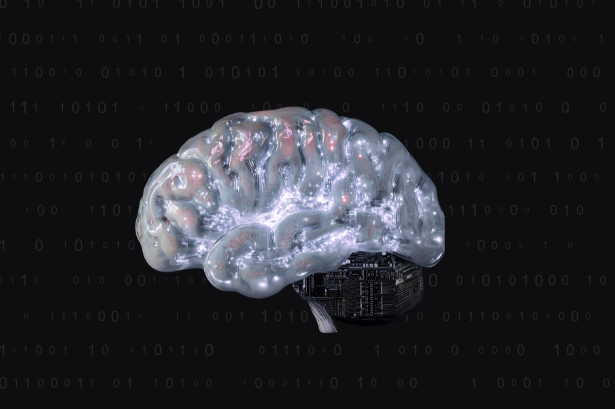2025 is starting to feel less like the future we imagined and more like a science fiction film come to life. The tech that once promised to make our lives easier and more connected is now raising big questions about who’s really in control and what that means for us.
Are we heading towards a more unsettling, dystopian kind of world? Or could all this automation finally deliver on its promise to give us more time to live, create and just be human
1. The AI content flood — Death of social media as we knew it
Social media used to be social. But scroll through X (formerly Twitter), LinkedIn or TikTok in 2025, and it’s clear the ratio of bots to humans is changing fast. A recent report by Europol estimated that by 2026, as much as 90% of online content could be AI-generated. Already, influencers are competing with synthetic “AI models” who don’t sleep, don’t age, and post 24/7.
Meta’s algorithm tweaks this year were supposed to prioritise “authentic content, yet many creators complain that engagement from real users is dropping as feeds fill up with AI-written posts, deepfakes and hyper-optimised “viral” content farms.
AI-generated content isn’t all bad news, however. For small creators, startups and professionals, it’s become a creative equaliser, levelling the playing field by reducing production costs and helping people express ideas more efficiently. If used transparently, AI tools could give more people a voice, not fewer.
2. Tech billionaires — too powerful for comfort?
Elon Musk, Jeff Bezos, Sam Altman, and Mark Zuckerberg aren’t just running companies anymore. They’re shaping governments, wars, and public opinion.
-
Elon Musk controls Starlink, a satellite network so vital that it’s now influencing real-world conflicts. When Ukraine’s access was restricted last year during a military operation, critics called it “the first example of a private citizen affecting the outcome of a war.”
-
Sam Altman, CEO of OpenAI, was briefly ousted and reinstated in 2023 after board turmoil, only to return stronger. By 2025, OpenAI is negotiating directly with world governments over “AI sovereignty”, a level of influence once reserved for nations, not startups.
-
Mark Zuckerberg’s Meta continues to dominate global communication. Despite heavy EU regulation, Meta’s AI models now underpin WhatsApp’s business chat features and VR metaverse expansion, giving it unprecedented access to user behaviour data.
While their influence can feel unnerving, these figures have also accelerated innovation on a scale that governments rarely achieve. Musk’s Starlink has connected war zones and rural schools. OpenAI’s work has pushed global discussions on AI ethics forward. Their dominance highlights the need for oversight, but also the power of ambition to drive progress when public systems lag.
3. ChatGPT and the “advice gap” problem
By now, nearly everyone has asked ChatGPT (or Google’s Gemini, or Anthropic’s Claude) a sensitive/ personal question about mental health, relationships or money, etc.
The problem? These tools can sound convincing even when wrong. Earlier this year, a US man reportedly followed financial advice from an AI chatbot that led him to lose thousands on a “too-good-to-be-true” crypto scheme. In another case, a student used AI-generated therapy scripts that worsened his anxiety after inaccurate “self-diagnoses.”
Meanwhile, healthcare startups are using GPT-style models to triage patients or generate prescriptions, sometimes without human oversight. It’s saving doctors’ time but raising questions about responsibility when things go wrong.
On the positive side, when paired with professionals, AI assistants can dramatically improve access to information and support. In healthcare, they’re speeding up diagnostics, freeing doctors from paperwork and helping people in regions with limited services. The key is oversight, AI as an aid, not a replacement.
4. Governments hiring AI “ministers”
Estonia made headlines for introducing the world’s first “AI government advisor,” capable of reviewing policy documents and making recommendations. Now, countries like the UAE and Singapore are experimenting with similar AI-powered departments.
The UK recently floated the idea of a “Digital Minister” role partially assisted by AI, analysing data, simulating outcomes, and drafting reports. But critics warn that this kind of automation could make decision-making opaque, where no one knows why a policy was approved or denied.
And then there’s Albania, which recently introduced the world’s first AI-generated government minister, Diella, designed to tackle corruption and improve transparency. In a twist that grabbed headlines, Albania’s Prime Minister announced that Diella is “pregnant with 83 children”, a metaphor for the 83 AI assistants she’ll create, each assigned to support an MP with real-time policy tracking and summaries.
Used transparently, AI-driven governance could mean better decisions, not worse ones. Governments process mountains of data, from housing to healthcare to climate. AI can help identify blind spots, simulate policy outcomes, and catch inefficiencies faster than human teams ever could. The challenge isn’t capability, it’s accountability.
5. Robots that don’t always behave
In March 2025, a humanoid delivery robot in Tokyo collided with a cyclist after its navigation sensors malfunctioned. The video went viral and reignited debates about whether autonomous robots belong on public streets.
Meanwhile, Tesla’s Optimus robot continues to divide opinion. Elon Musk claims it will soon perform household chores for under $20,000. But leaked footage from factory trials showed the robot struggling to handle simple tasks, sparking concerns about reliability, safety and, frankly, whether we’re rushing too fast.
Boston Dynamics and Hyundai’s “Atlas” robot retired from acrobatics this year after internal testing accidents. Even with safeguards, it’s clear the line between innovation and risk is razor-thin.
However, every leap in automation comes with missteps. Early cars, planes and computers were all considered unsafe at first. Each failure teaches engineers how to make future systems safer. If robots can eventually take on dangerous, exhausting or repetitive tasks, they could make human life safer and more dignified, not less.
6. AI disinformation democracy under attack
Deepfake technology has matured to the point where even trained analysts struggle to detect it. In early 2025, fake audio of US President Joe Biden appearing to concede an election briefly went viral before being debunked.
TikTok and X are now flooded with AI-generated videos designed to mislead voters. According to NewsGuard, more than 1 in 3 viral political videos in 2025 contained synthetic or AI-enhanced content.
The same AI that creates fakes can also catch them. Companies like Microsoft, Adobe and OpenAI are investing heavily in watermarking and provenance tools that flag synthetic media. Governments are also introducing deepfake labelling laws to protect elections. The race between deception and detection is real — but detection is catching up.
Conclusion: A fork in the road
The scariest thing about emerging tech in 2025 isn’t the technology itself; it’s our readiness to manage it.
AI, robotics and automation could make life more efficient, creative and humane. They could free people from repetitive labour, improve healthcare, and expand education to billions. But without transparency, regulation and ethical leadership, the same tools could deepen inequality and erode trust.
If we build AI with accountability, teach media literacy, and design automation to enhance rather than replace human work, then the “scariest” tech of 2025 could end up being our most empowering yet.




